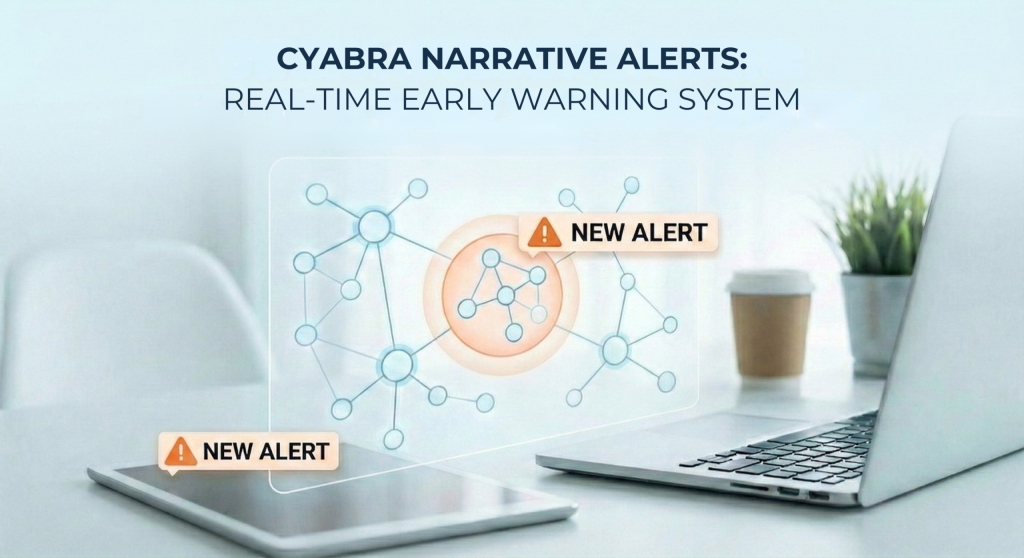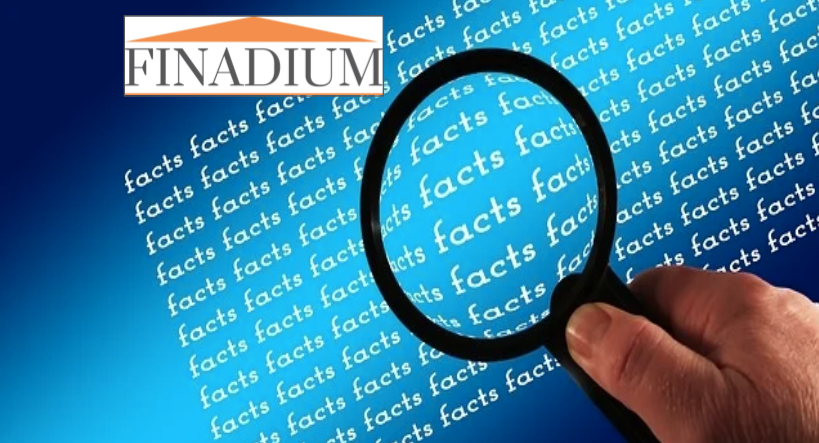Woolworths Supermarkets, AKA “Woolies”, is Australia’s biggest supermarket chain, sometimes referred to as “the Aussie Walmart”. Founded in 1924, Woolworths holds a market share of 33% as of 2019.
Woolworths’ PR crisis started ahead of Australia Day – the national day of Australia, taking place on January 26. Woolworths had just announced it would not sell Australia Day merchandise due to a gradual decline in demand over recent years, as well as “A broader discussion about January 26 and what it means to different parts of the community.” The statement referred to rising scrutiny surrounding the cultural impact of the national holiday and its meaning for indigenous communities.
The Beginning of a PR Crisis
Woolworths’ statement caused a wide backlash, both on social media and offline. Calls for a boycott rose quickly, partly led by the leader of the opposition in parliament, Peter Dutton. Two Woolworths stores were vandalized. The hashtags #BoycottWoolies #BoycottWoolworths, #AustraliaDay, #Woolworths, and #WokeWorth (ridiculing Woolworths for being “too woke”) were trending on X. Content surrounding the controversy, most of it negative, reached a potential exposure of over 78,698,000 views.
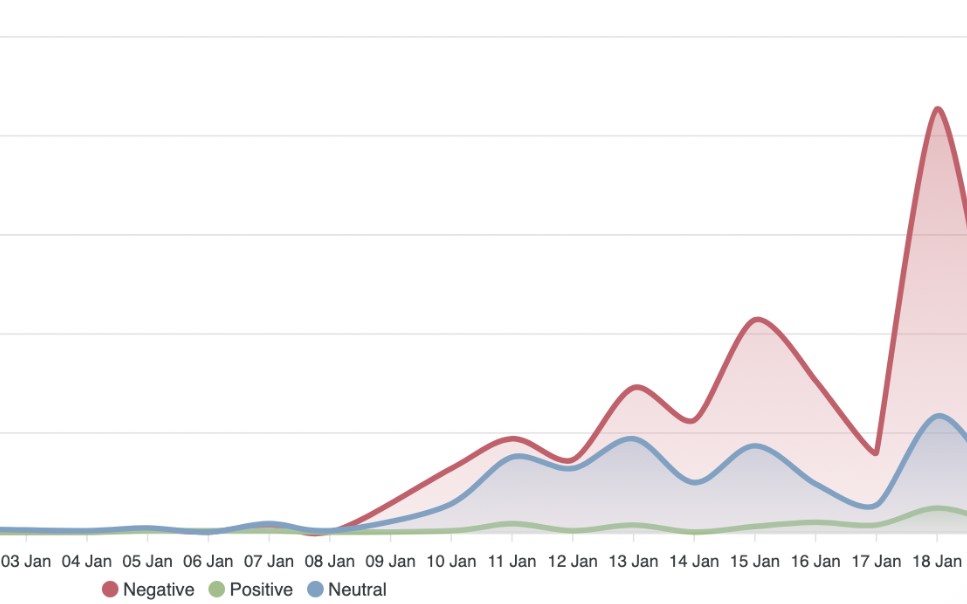
Some of the prominent posts in the discourse deemed Woolworths’ actions as unpatriotic and actively encouraged Australians to take their business elsewhere. Other posts showed a drop in Woolworths’ stock since the statement was made.
Influencers heavily criticized Woolworths on X. Notice the first post utilizes the hashtag #Auspol, short for Australian politics: a neutral hashtag used simply to achieve virality in similar topics.
Fake Profiles Adding Fuel to the Fire
A conglomerate as big as Woolworths has seen its fair share of PR crises. This crisis, however, was quite different: It was heavily influenced by fake profiles. 16% of the profiles that used the hashtag #BoycottWoolworths on social media were fake (compared to an average of 5% to 7% in similar cases previously scanned by Cyabra). The fake profiles’ posts and comments received 775 interactions and reached a potential of over 1,234,000 views.
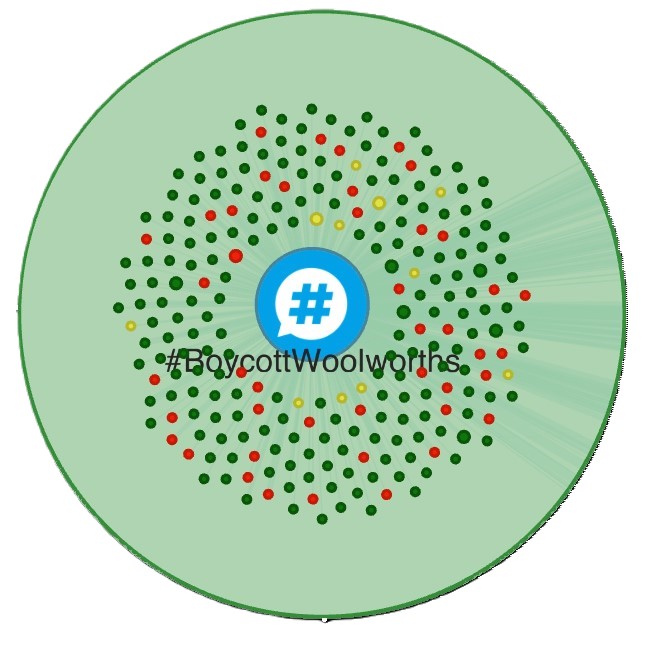
A YouGov survey released later that week showed that only 20% of Australians support a boycott against Woolworths. However, people who rely on social media as their primary source of news would have perceived the calls for boycott as a massive trend that reached extensive support – which is exactly what the bad actors who operated the fake profiles wanted.
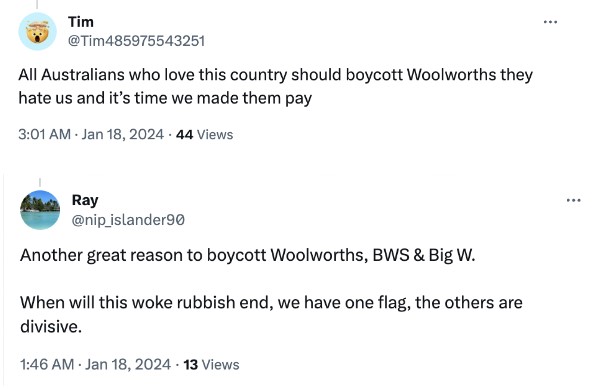
The Bigger the Brand, The Harder It Falls
Later that week, Aldi, the second largest supermarket chain in Australia, has joined Woolworths and confirmed they too will not sell Australia Day merchandise. They were then joined by another large retail chain, Kmart. Protest against those two companies was much smaller than the backlash surrounding Woolworths, which is still taking on most of the fire. While the protest might be led by authentic profiles and even public figures, it has been and is still being harnessed by fake profiles, using it to promote their operators’ agenda.
While most companies are well versed in dealing with PR crises, when an “Anti-Woke” influence operation campaign led by fake profiles latch onto a protest, it can deal major damage to the reputation of any brand or company.
Woolworths’ backlash demonstrates the importance of detecting fake campaigns and fake profiles on social media platforms, which requires a completely different skill set than those typically associated with marketing teams and marketing agencies. If you’d like to learn more, Contact Cyabra to set up a demo.

